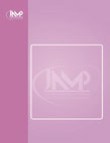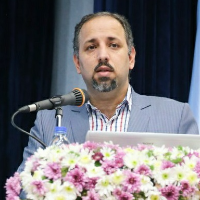Procedures on the newly deceased: An ethical and educational challenge
Author(s):
Article Type:
Research/Original Article (دارای رتبه معتبر)
Abstract:
Introduction
The newly deceased patients have long been used in medical schools to teach clinical skills without any challenges as it helps to train skilled doctors. Nowadays, the use of moulages and simulators are common in teaching clinical skills since these tools provide the opportunity for frequent practice without any pain and injury. There are specific procedures which still require the use of cadavers. However, the increased significance of patient rights has generally challenged the practicality of using the deceased bodies for this purpose. This study was designed with the aim of determining to what extent clinical skill training is dependent on the recently deceased patients.Methods
This was a cross-sectional mixed-method triangulation design conducted in two phases. In the first phase, a researcher-made questionnaire was used to collect quantitative data of the medical students and residents. The data were used to assess the frequency of experience. In the second stage, semi-structured interviews were conducted with faculty members and fellows in order to evaluate the educational impact of this type of procedure and the influential factors. The quantitative data were analyzed using statistical software, and the qualitative codes were extracted following a content analysis. Finally, a comparative analysis was performed.Results
Twenty five residents (26%) and seven medical students (14%) had the experience of performing procedures on the recently deceased patients for training purposes. About half of the residents and 33% of the medical students had observed their colleagues practicing procedures on cadavers. In the qualitative phase, the main categories included professional ethics, law and educational requirements.Conclusion
A relatively low number of medical students and residents had experienced procedures on the newly deceased patients. In this regard, ethical, religious and legal concerns might have played a part despite the desire to learn. It would be effective to direct these educational experiences toward procedures that cannot be mastered through moulages and simulators, and to lay the legal and executive ground so that performing these procedures under the supervision of professors, and with a level of documentation would have no legal challenges.Keywords:
Cadaver , Learning , Clinical skills , Ethics
Language:
English
Published:
Journal of Advances in Medical Education & Professionalism, Volume:6 Issue: 2, Apr 2018
Pages:
78 to 85
https://magiran.com/p1813608
دانلود و مطالعه متن این مقاله با یکی از روشهای زیر امکان پذیر است:
اشتراک شخصی
با عضویت و پرداخت آنلاین حق اشتراک یکساله به مبلغ 1,390,000ريال میتوانید 70 عنوان مطلب دانلود کنید!
اشتراک سازمانی
به کتابخانه دانشگاه یا محل کار خود پیشنهاد کنید تا اشتراک سازمانی این پایگاه را برای دسترسی نامحدود همه کاربران به متن مطالب تهیه نمایند!
توجه!
- حق عضویت دریافتی صرف حمایت از نشریات عضو و نگهداری، تکمیل و توسعه مگیران میشود.
- پرداخت حق اشتراک و دانلود مقالات اجازه بازنشر آن در سایر رسانههای چاپی و دیجیتال را به کاربر نمیدهد.
In order to view content subscription is required
Personal subscription
Subscribe magiran.com for 70 € euros via PayPal and download 70 articles during a year.
Organization subscription
Please contact us to subscribe your university or library for unlimited access!



